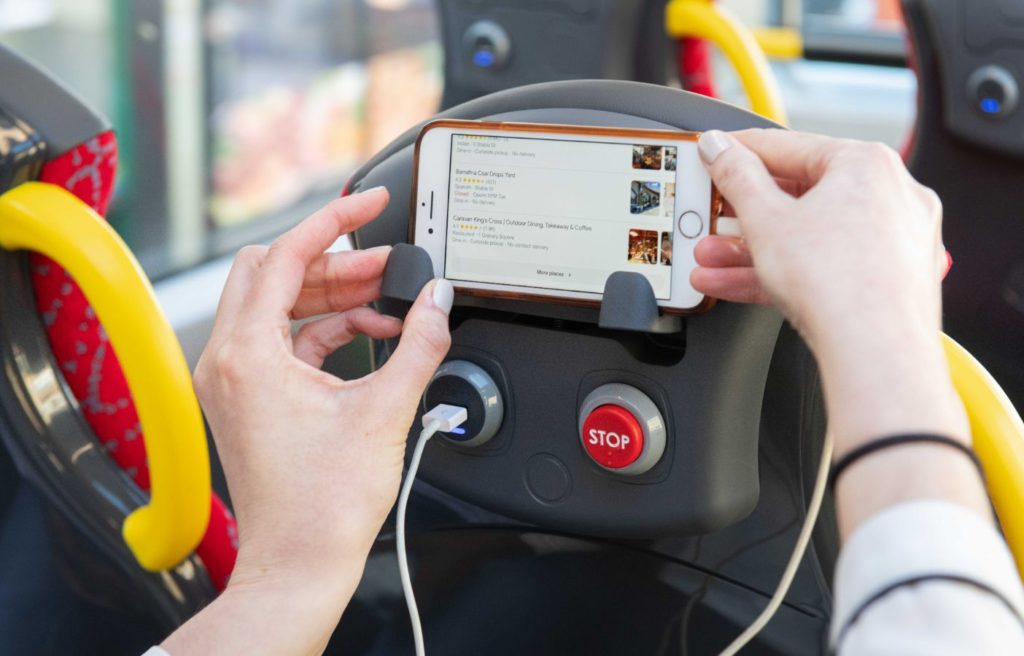A fleet of new, higher specification all-electric buses are being introduced on a London bus route but could be the last if Transport for London (TfL) do not agree a long-tern funding deal with the government, the operator has warned.
New electric buses were first deployed around two years ago and are a sign of what the future of buses could be if the government agrees a long term funding deal, TfL said.
The buses were designed to have a more open feel – with a skylight on the upper deck, larger rear window, and handles on the backs of seats rather than vertical poles for an unobstructed view.
There are covers for the priority seats with a contrasting colour scheme to help differentiate them from other seats for passengers who are less able to stand. The vehicles also have a larger wheelchair and buggy area, improving accessibility. CCTV cameras have also been upgraded to provide higher-definition footage.
Furthermore, the buses include USB chargers and mobile phone holders in the seats. Digital signage on board the buses are designed to share a wider range of real-time information, including the time to the next stop, disruptions, and service updates for Tube and Overground services.

The operator is introducing these new buses to the north-south route 63, it comes as ridership on the route, between King’s Cross and Honor Oak, has returned to close to pre-pandemic levels.
New route 63 buses were manufactured by ADL, a bus and coach manufacturer based in Scarborough.
They will join the 650 zero-emissions buses in the capital’s fleet, with electric buses produced around the UK including in Ballymena and Falkirk, which TfL said demonstrates how investment in the capital’s transport network helps level up the whole country.
London’s mayor has committed to all new buses in the city to be zero-emission by 2034. TfL added with sustained government funding, this could be brought forward to 2030.




